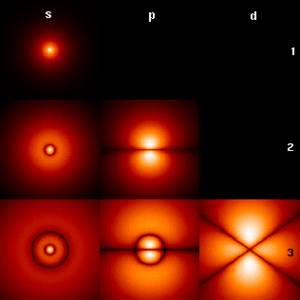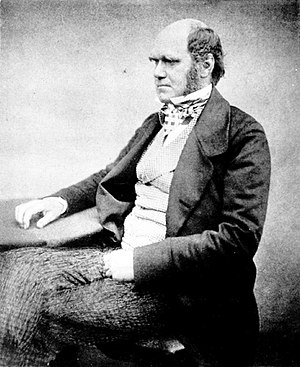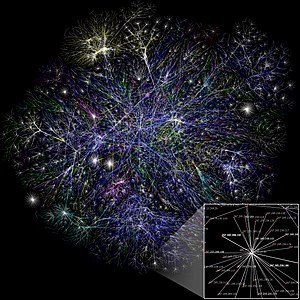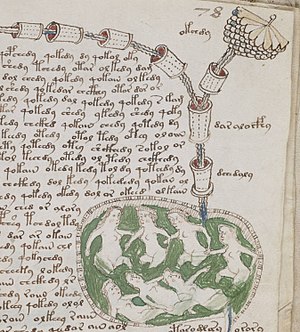 Image via WikipediaDear Readers,
Image via WikipediaDear Readers,Teaching is important.
It is so important, in fact, that I have given it its own line. My need to say it was inspired by a time-normal blog post that came through the Augur Box this morning. University teaching in your time stream, it seems, is a big problem.
One of the great problems that I hear cited is the emphasis on research, grant money, and tenure. These three things push professors in your time stream away from research and into working without their students. In some ways, it forces them to be grant-writing drones who focus solely on the work their graduate students have done.
Not so at the University of Constantinople, and not because we don't have to worry about tenure and our research. We are focused on teaching because teaching leads to inspiration.
Learning requires rehearsal, understanding, and questioning. These are also things that are key to research, but in a way that requires far less awareness. Though it is possible to do so, we cannot just scurry about moving through the motions of research without paying attention to the information that we're getting from it. Research is a long crush that throws loads and loads of information into the human attic, the upper levels of the brain that we are so cruddy at accessing.
Many researchers feel that it's a pain to communicate, to crack open that attic, wander up there, and start sorting things out. It might mean digging through old love letters and prom dresses, rusty armor and rustier neurons, but it must be done.
A professor must profess, it is not simply enough to investigate.
Of course, one must ask, why do I say "must"? Perhaps it's good for humanity, perhaps it will help others advance their science. Perhaps, in the case of a class, it will help students learn.
Those altruistic things are nice, but we all need our selfish reasons too.
So what is the selfish reason to teach? It's simple. You clear off the cobwebs. Each lecture, each moment spent in preparation, and most importantly each instant you are talking to your students is full of reassessment, rethinking, and processing. Processing is that "rehearsal, understanding," etc. thing I referred to above. Without it, we do not know where we came from, and if we do not know where we came from, we do not know which questions to ask.
Research is about questions. Teaching makes you think of questions. It allows your students to think of questions. It presents you with questions to ask and questions to answer, in these routes.
It should be clear by now that there's no excuse for not teaching. It makes me a better researcher, I know that. If you're a professor, it will make you a better researcher. If you are a student, even, it will make you better. Teach your peers, and furthermore, teach them to teach others. You can change the distressing trend to under-teach by injecting teaching into the social network of your Universities.
And when you encounter a professor who doesn't do his homework, don't whinge and moan. Don't complain on forms and wait for the University to make it all better. Go to his or her office hours and badger that professor with questions until they themselves get curious, get out into the literature, and start searching. When they start searching because of you, you haven't just noticed a bad teacher: you've made them a better one!
Always,
Dr. John Skylar
Chairman
Department of Anachronism
University of Constantinople





















![Reblog this post [with Zemanta]](http://img.zemanta.com/reblog_e.png?x-id=d83a0d6c-8014-41d7-a7b9-354629c0d8f9)


![Reblog this post [with Zemanta]](http://img.zemanta.com/reblog_e.png?x-id=4c7f1191-abfd-4d87-9fc5-a4aee1d546db)



![Reblog this post [with Zemanta]](http://img.zemanta.com/reblog_e.png?x-id=89f488ac-d313-468b-98f7-0f7d5aae772b)


![Reblog this post [with Zemanta]](http://img.zemanta.com/reblog_e.png?x-id=565623c4-15a0-4486-8860-5a04ece31303)



![Reblog this post [with Zemanta]](http://img.zemanta.com/reblog_e.png?x-id=834c164c-d0be-4316-b70c-a48acba24bd4)


![Reblog this post [with Zemanta]](http://img.zemanta.com/reblog_e.png?x-id=5b4da966-6d1c-4539-9c3c-0be4602942e9)

![Reblog this post [with Zemanta]](http://img.zemanta.com/reblog_e.png?x-id=f69a00ec-5f81-4d01-95a5-6f82decb4752)


![Reblog this post [with Zemanta]](http://img.zemanta.com/reblog_e.png?x-id=b992a132-8932-4f5f-8106-bbc698bb1832)